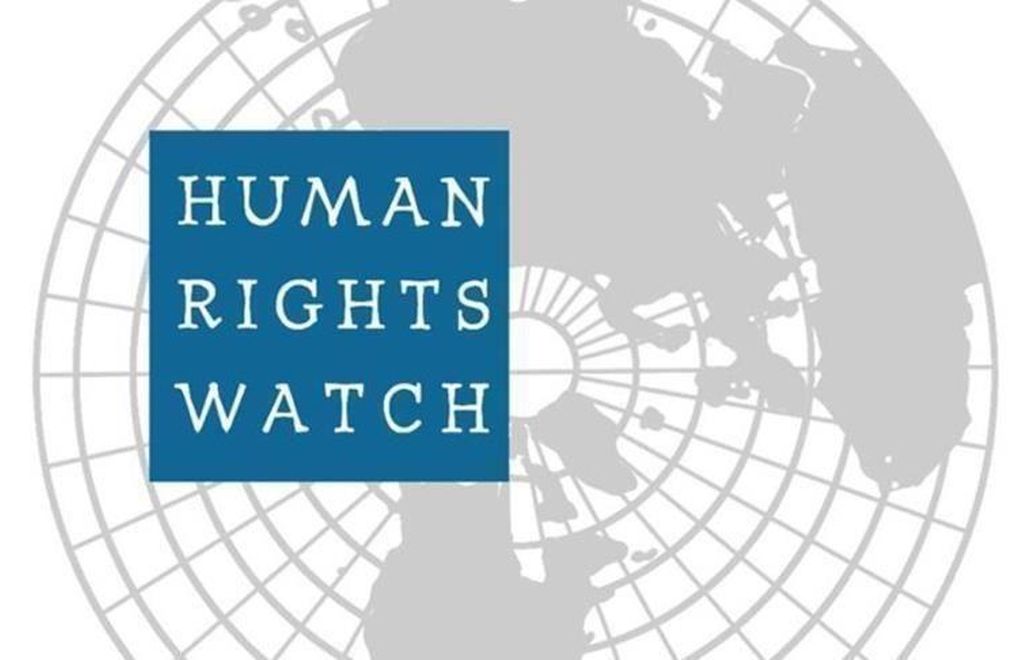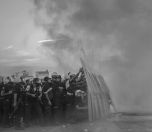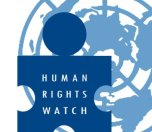Click to read the article in Turkish
The Human Rights Watch (HRW) has released its "World Report 2022," covering the events that happened around the world in 2021.
In its chapter on Turkey, the HRW has commented that "the authoritarian and highly centralized presidential government of Recep Tayyip Erdoğan has set back Turkey's human rights record by decades, targeting perceived government critics and political opponents, profoundly undermining the independence of the judiciary, and hollowing out democratic institutions."
The HRW has also recalled that by a Presidential decision, "Turkey withdrew from the Council of Europe Convention on Preventing and Combating Violence against Women and Domestic Violence, known as the Istanbul Convention, a major reversal for women's rights."
Regarding the continued arrest of businessperson and rights defender Osman Kavala for over 4 years, the HRW report has said:
The four-year detention and ongoing trial of Osman Kavala, a leading figure in civil society, exemplified the enormous pressure on human rights groups and other nongovernmental groups critical of the government. Kavala is on trial on baseless charges in connection with the 2013 Gezi Park protests and the July 2016 failed coup. Turkey has flouted a European Court of Human Rights' judgment ordering his immediate release on grounds of insufficient evidence. The judgment found that Kavala's detention sought to silence him as a human rights defender.
Offering a general analysis of the situation of rights defenders, the report has noted: "Authorities continued to use terrorism and defamation charges to harass rights defenders, and to violate their right to assembly."
Other highlights from the report are as follows:
Freedom of expression, association, assembly
- While most news outlets are owned by companies with close government links, independent media in Turkey mainly operate via online platforms but are subject to regular removal of content or prosecution for news coverage critical of senior government figures and members of President Erdoğan's family or deemed to constitute an offense under Turkey's highly restrictive Anti-Terror Law.
- At time of writing, 58 journalists and media workers were in prison or serving sentences for terrorism offenses because of their journalistic work or association with media.
- Provincial authorities selectively used Covid-19 as a pretext to ban peaceful protests by students, workers, political opposition parties, and women's and lesbian, gay, bisexual and transgender (LGBT) people's rights activists.
- President Erdoğan's appointment of an unelected rector to the prestigious Boğaziçi University sparked protests, which were met with violent police crackdown and prosecutions against dozens of student protesters.
Women's and LGBTI+ rights
- Turkey is the first country to have withdrawn from the Istanbul Convention. The move in March drew widespread criticism internationally, and saw protests by women's rights groups. It spells a major reversal for efforts to combat gender-based violence and promote women's rights in Turkey. Government officials justified the withdrawal and attempted to appeal to conservative voters with the specious claim that the Convention "normalizes homosexuality."
- Hundreds of women are murdered annually in Turkey and reported incidents of domestic violence remain high.
- The government banned the annual LGBT Pride march in Istanbul for the seventh successive year and police violently dispersed and detained protesters. Senior government officials have on several occasions attacked and encouraged discrimination against LGBT people in their political speeches.
Torture, ill treatment, disappearance
- There was little evidence to suggest prosecutors made progress in investigating the rising allegations of torture and ill-treatment in police custody and prison reported over the past five years. Few such allegations result in prosecution of the security forces, and a pervasive culture of impunity persists.
Refugees, asylum seekers, migrants
- There have been signs of a rise in racist and xenophobic attacks against foreigners. On August 10, groups of youths attacked workplaces and homes of Syrians in a neighborhood in Ankara a day after a fight during which a Syrian youth allegedly stabbed two Turkish youths, killing one. Two Syrian youths are on trial for murder. The prosecutor's investigation into dozens of youths for damaging property, theft, and other crimes continues.
- Opposition politicians made speeches that fuel anti-refugee sentiment and suggest that Syrians should be returned to war-torn Syria.
(AS/SD)







